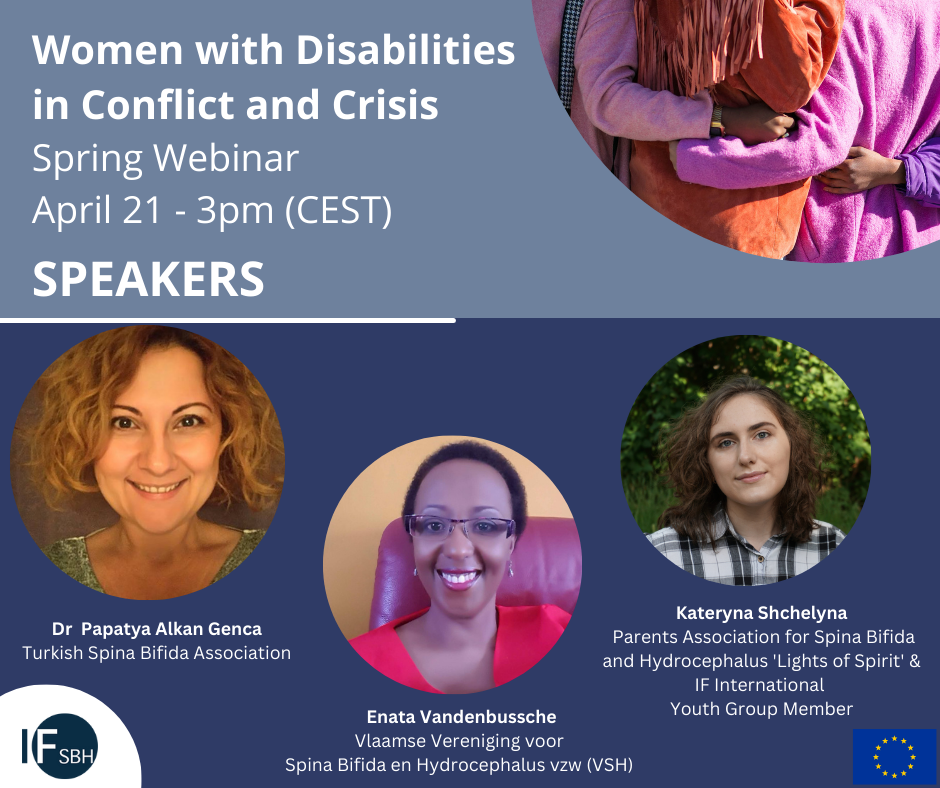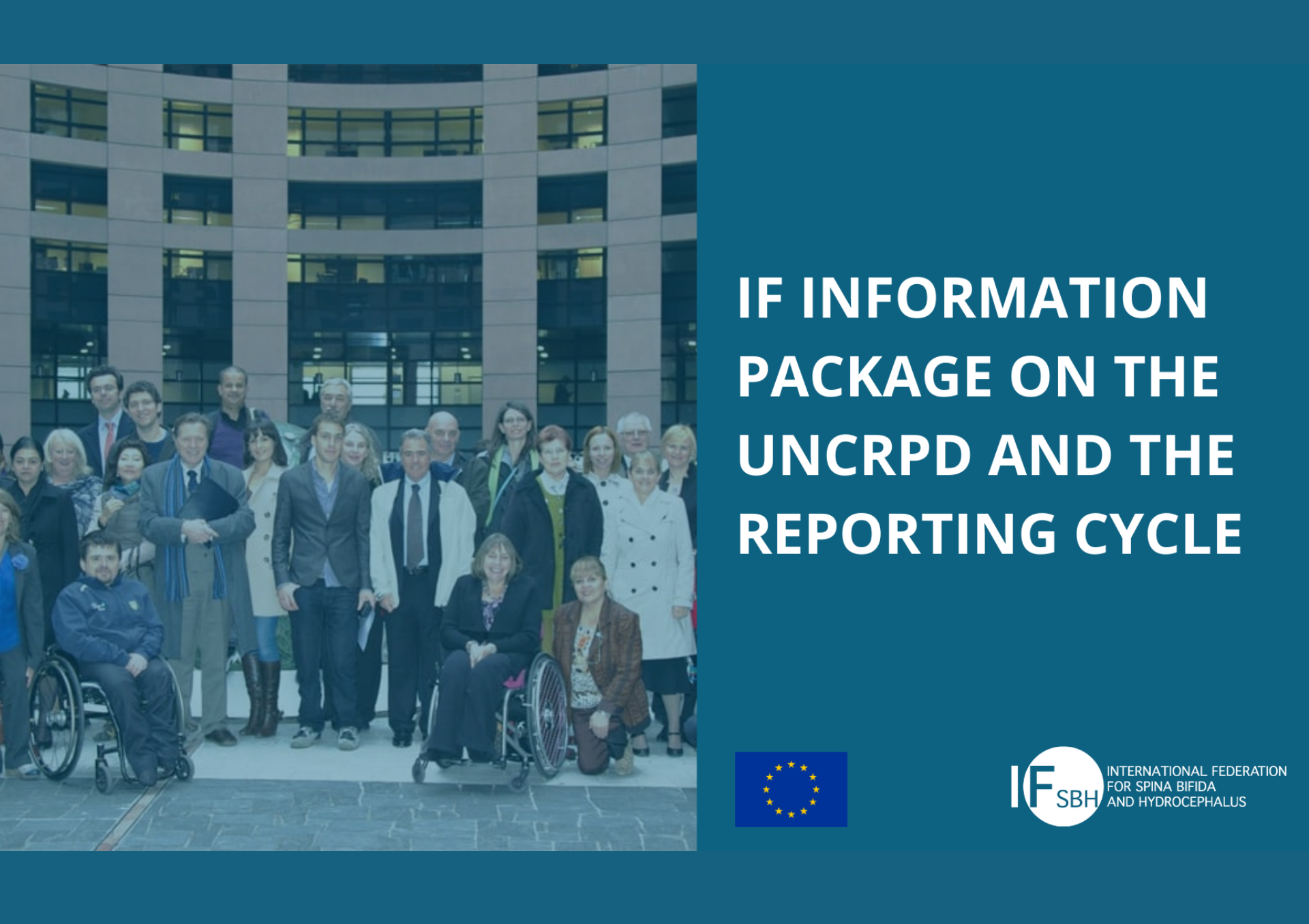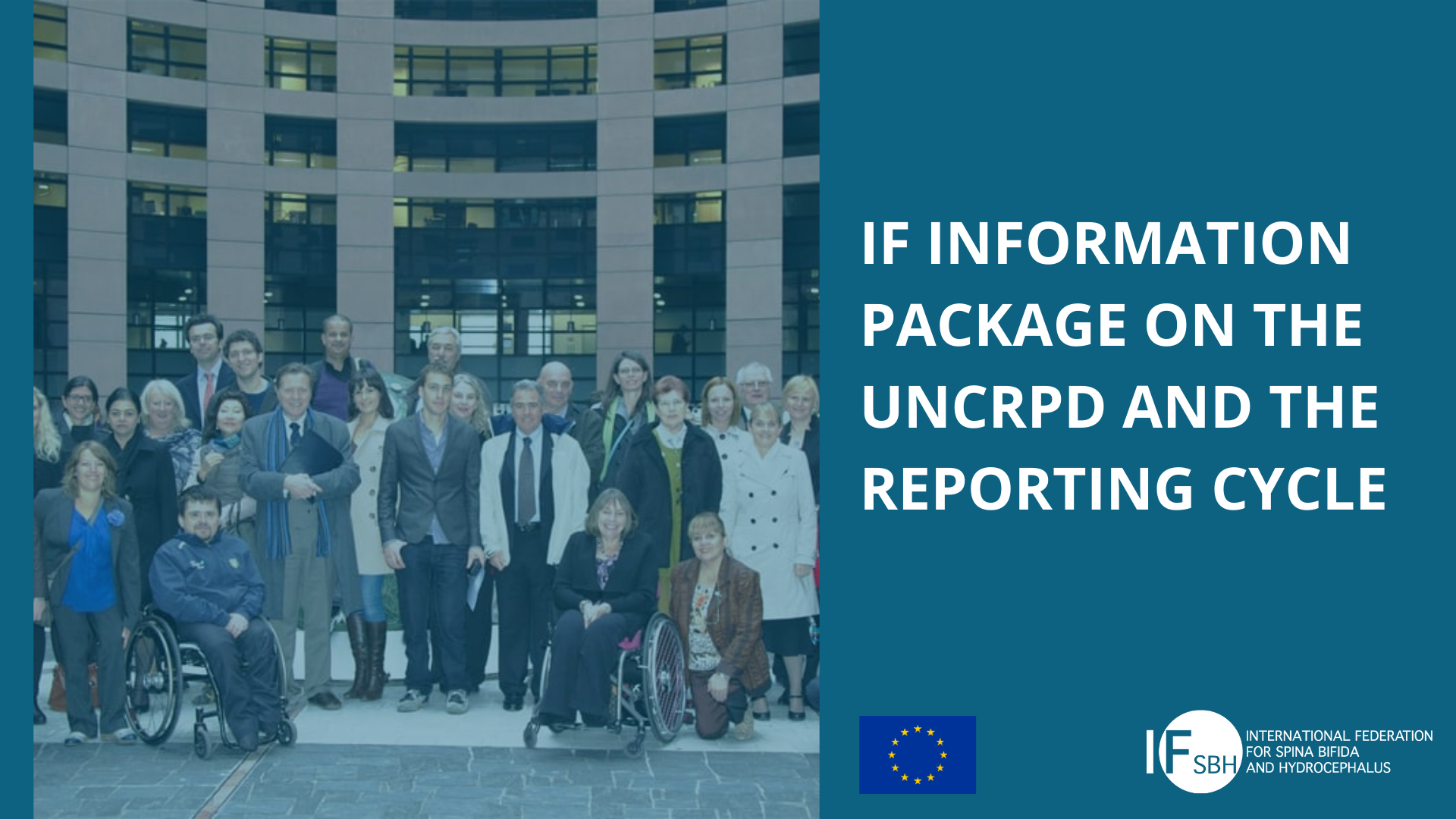On April 21, 2023, the International Federation for Spina Bifida and Hydrocephalus held its spring webinar titled “Women with Disabilities in Conflict and Crisis” with the aim of better understanding the risks and vulnerabilities faced by women in conflicts and crises as well as the opportunities and resources available to support women and girls with disabilities who are impacted by conflicts and crises.
Speakers
- Papatya Alkan Genca – IF board member, and member of the Turkish Spina Bifida Association
- Enata Vandenbussche – Vlaamse Vereniging voor Spina Bifida en Hydrocephalus vzw (VSH)
- Kateryna Shchelyna – IF International Youth Group Member, ‘Lights of Spirit’ and Ukrainian Parents Association for Spina Bifida and Hydrocephalus
The webinar was divided into 2 sessions. The first session was titled ‘What risks/vulnerabilities do women and girls with disabilities affected by conflict and crisis face’ and the topic of the second session was ‘Access to support and services for women and girls with disabilities affected by conflict and crisis’.
In the opening remarks of the first session, Dr. Papatya Alkan Genca of the Turkish Spina Bifida Association emphasized the reasons why women with disabilities are frequently marginalized and invisible in society, even among those who support disability rights, gender equality, and the empowerment of women. She stressed that women with disabilities have been underrepresented in decision-making positions for a very long time, which hides the real reasons why they are discriminated against, thus allowing the continuation of damaging preconceptions about gender and disability, resulting in countless abuses of human rights.
In her words, ‘Our national associations for spina bifida is a good place to look for support for the rights and inclusion of disabled persons’.

Following that, the next panelist, Kateryna Shchelyna, from the IF International Youth Group, Lights of Spirit, and Ukrainian Parents Association for Spina Bifida and Hydrocephalus, continued the discussion by pointing out that prejudice against women with disabilities occurred in Ukraine prior to the conflict. She emphasized the existence of psychological abuse and prejudice in workplaces, educational institutions, and healthcare settings. She talked about the difficulties experienced by those with disabilities in a university setting. Examples include a lack of accessible amenities in buildings, a lack of live communication, and insufficient evaluations of students with disabilities. She further highlighted the absence of sexual education and gender equality in Ukraine, which contributes to an increase in sexual violence and abuse, particularly towards women who are disabled. She emphasized the differences between sexual assaults that occurred before and after the conflict, pointing out that women who are disabled are especially vulnerable since they are unable to protect themselves during the war. In her argument, she underlined that women with disabilities face double psychological violence as a result of two forms of discrimination. The first is determined by gender, and the second by the presence of a disability.
She quotes, ‘In Ukraine people experience double discrimination. First on the basis of gender and next on the basis of disability‘.

The second session was opened by Enata Vandenbussche of the Vlaamse Vereniging voor Spina Bifida en Hydrocephalus vzw (VSH), who described how her original parents abandoned her at age 11 owing to her condition before being adopted by a family from Belgium. She pointed to the fact that women with disabilities are usually seen as non-contributing parasitic entities within society which is false. According to her experiences, women and girls with disabilities are far more likely to endure physical and sexual violence, as well as exclusion from education and employment opportunities. She highlighted how, as representatives of her associations, persons with disabilities may serve as role models for the community, demonstrating how meaningful life can be despite limitations.
In the words of Enata, ‘I try to prevent other girls experience the same thing that I have had experienced as a person with SBH’

The webinar welcomed distinct perspectives by IF members which was one such platform where a focus was given to women with spina bifida to share their experiences on risks and best practices to reduce risks for women with disabilities. In this way the IF spring webinar served to facilitate the dialogue on the topic of women with disabilities in conflict and crisis.
You can view the recording of the webinar on IF’s YouTube channel here




